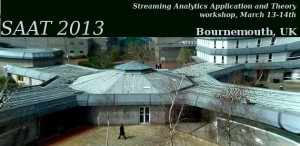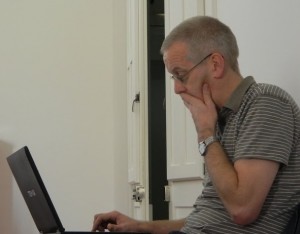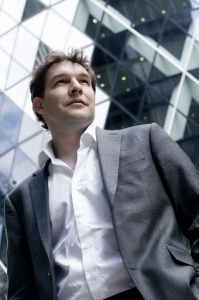As part of the Service Computing Seminar (SCS) project, funded by Bournemouth University Fusion Investment Fund, we would like to invite you to the Service Computing Seminar

Title: Servicing Big Data
Time: 14:00-16:00 Wednesday, 18 Dec. 2013
Venue: PG143 (Thomas Hardy Suite, Talbot Campus)
Speaker: Prof. Athman Bouguettaya, Head of School of Computer Science and Information Technology at RMIT University, Melbourne, Australia
Abstract
Big data is here and in a big way. Big data is coming from all sorts of sources and means, including sensors, deep space, social media, smartphones, genomic, etc. The cloud has been instrumental supporting the storage and processing of the ever increasing amount of data. “Domesticating” the data, i.e., making it useful, however, has been a major challenge. Service computing is the next major evolution of computing that aims at transforming massive data into artefacts that are acted upon, i.e., services. Service computing is increasingly being recognized as part of a broader agenda in Service Science. In that respect, service computing may be viewed as the “engineering” side of service science. Service computing broadly focuses at providing a foundational framework to support a service-centric view of designing, developing, and exposing data (and applications), whether it is in the enterprise or on the Web. In that respect, the Web is and will undoubtedly be the preferred delivery platform of service-based solutions. More specifically, Web services are currently without contest the key enabler for deploying service-centric solutions. Fully delivering on the potential of next-generation Web services requires building a foundation that would provide a sound design for efficiently developing, deploying, publishing, discovering, composing, trusting, and optimizing access to Web services in an open, competitive, untrustworthy, and highly dynamic environment. The Web service foundation is the key catalyst for the development of a uniform framework called Web Service Management System (WSMS). In this novel framework, Web services are treated as first-class objects. In this talk, I will first motivate the need for a uniform service management to service big data. I will then overview the core components of a typical WSMS. I will conclude by describing our latest research servicing sensor data.
Short Bio
Athman Bouguettaya is Professor and Head of School of Computer Science and Information Technology at RMIT University, Melbourne, Australia. He received his PhD in Computer Science from the University of Colorado at Boulder (USA) in 1992. He was previously Science Leader in Service Computing at CSIRO ICT Centre, Canberra. Australia. Before that, he was a tenured faculty member and Program director in the Computer Science department at Virginia Polytechnic Institute and State University (commonly known as Virginia Tech) (USA). He is a founding member and past President of the Service Science Society, a non-profit organization that aims at forming a community of service scientists for the advancement of service science. He is on the editorial boards of several journals including, the IEEE Transactions on Services Computing, ACM Transactions on Internet Technology, the International Journal on Next Generation Computing, VLDB Journal, Distributed and Parallel Databases Journal, and the International Journal of Cooperative Information Systems. He is also on the editorial board of the Springer-Verlag book series on Services Science. He served as a guest editor of a number of special issues including the special issue of the ACM Transactions on Internet Technology on Semantic Web services, a special issue the IEEE Transactions on Services Computing on Service Query Models, and a special issue of IEEE Internet Computing on Database Technology on the Web. He served as a Program Chair of the 2012 International Conference on Web and Information System Engineering, the 2009 and 2010 Australasian Database Conference, 2008 International Conference on Service Oriented Computing (ICSOC) and the IEEE RIDE Workshop on Web Services for E-Commerce and E-Government (RIDE-WS-ECEG’04). He has published more than 170 books, book chapters, and articles in journals and conferences in the area of databases and service computing (e.g., the IEEE Transactions on Knowledge and Data Engineering, the ACM Transactions on the Web, WWW Journal, VLDB Journal, SIGMOD, ICDE, VLDB, and EDBT). He was the recipient of several federally competitive grants in Australia (e.g., ARC) and the US (e.g., NSF, NIH). He is a Fellow of the IEEE and a Distinguished Scientist of the ACM.
![]() As part of the community, BUCSU is supporting Southampton University with this UK network.
As part of the community, BUCSU is supporting Southampton University with this UK network.























 REF Code of Practice consultation is open!
REF Code of Practice consultation is open! BU Leads AI-Driven Work Package in EU Horizon SUSHEAS Project
BU Leads AI-Driven Work Package in EU Horizon SUSHEAS Project Evidence Synthesis Centre open at Kathmandu University
Evidence Synthesis Centre open at Kathmandu University Expand Your Impact: Collaboration and Networking Workshops for Researchers
Expand Your Impact: Collaboration and Networking Workshops for Researchers ECR Funding Open Call: Research Culture & Community Grant – Apply now
ECR Funding Open Call: Research Culture & Community Grant – Apply now ECR Funding Open Call: Research Culture & Community Grant – Application Deadline Friday 12 December
ECR Funding Open Call: Research Culture & Community Grant – Application Deadline Friday 12 December MSCA Postdoctoral Fellowships 2025 Call
MSCA Postdoctoral Fellowships 2025 Call ERC Advanced Grant 2025 Webinar
ERC Advanced Grant 2025 Webinar Update on UKRO services
Update on UKRO services European research project exploring use of ‘virtual twins’ to better manage metabolic associated fatty liver disease
European research project exploring use of ‘virtual twins’ to better manage metabolic associated fatty liver disease